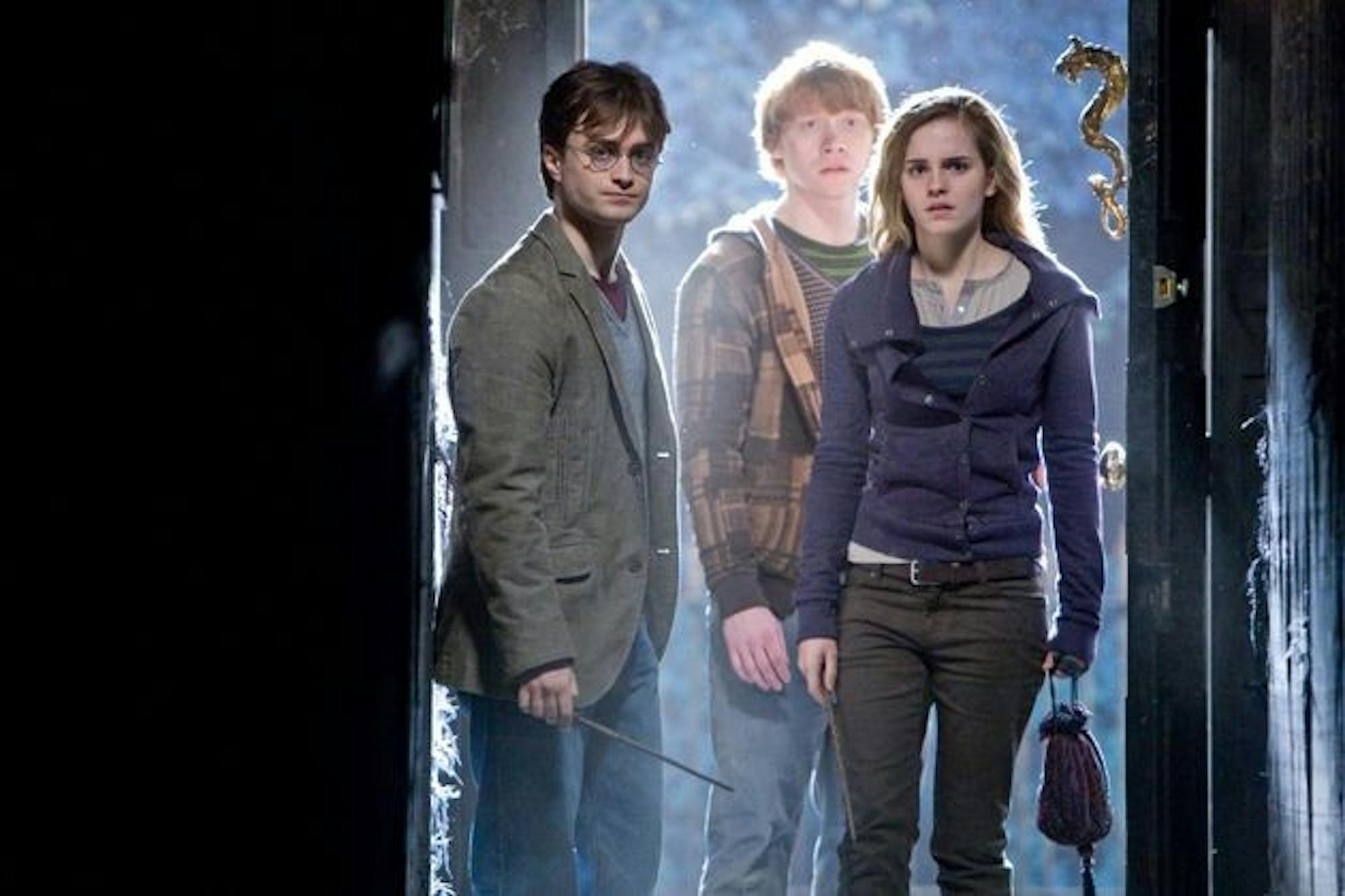Her observation was sad but probably true. Much of the audience many younger than 10 years old probably knew only actor Daniel Radcliffe as the legendary Boy Who Lived. To them, the latest Harry Potter film may be just another special effects blockbuster akin to the latest CGI movie from DreamWorks or Disney.
For me, the seventh Harry Potter movie means something entirely different: It means the (beginning of the) sad conclusion to one our favorite pop culture icons. When "Harry Potter and the Sorcerer's Stone" hit U.S. bookshelves in 1998, most of us were around the same age as the boy wizard. Potter's progression through Hogwarts followed our own path through middle school, then high school. We saw ourselves in Harry Potter, so much so that when in the final book Potter was revealed to have been born in 1980 and thus the entire series had been taking place eight or nine years in the past many of us were aghast.
Is the latest installment in the Harry Potter movie franchise a successful send-off to the revered book series? The answer is certainly yes, although each person's final judgment will most likely be contingent upon their opinion of the final book.
"Deathly Hallows" follows Potter, Ron Weasely and Hermione Granger as they search for the means to destroy Lord Voldemort, an evil wizard that has in one bold stroke ushered in an era of cruel oppression on the wizarding world. Trying to explain the premise of "Deathly Hallows" to the uninitiated is pointless, however if you don't already know the plot of the film, then you've been living under a rock for the past 15 years. But to these sad souls: be aware, spoilers follow.
When seeing this film, knowing the Harry Potter universe with a rigor approaching religious obligation is a necessity. The film is written in the lexicon of the dyed-in-the-wool Harry Potter fan.
Made for the die-hard reader, for better or worse, director David Yates's "Deathly Hallows" is a near page-for-page adaptation of the book. The film borrows the book's somber tone with the exception of the wedding between Bill Weasley and Fleur Delacour at the Weasley Burrow, "Deathly Hallows" is a dark affair. Even this happy event is all too brief, as it is quickly broken up by a deadly Death Eater raid.
The greatest strengths and weaknesses of the film are the same as those of the novel. Many have criticized the long stretches of storyboard devoted to Harry, Hermione and Ron's travels through the British countryside. Others have bemoaned the demise of the early books' light and whimsical tone in favor of a dark, almost apocalyptic one. Both of these concerns remain in the first installment of the final film.
Gone are the hallowed halls of Hogwarts and the gravity-defying Quidditch matches. The seventh film is entirely devoted to Harry's preparations for the final showdown between him and Voldemort.
Without Hogwarts or many other of the identifiable landmarks in the Potterverse, the film relies on its young actors to carry the weight of author J.K. Rowling's story. They do so, flawlessly. Radcliffe, Rupert Grint and Emma Watson have finally mastered their respective roles as Harry, Ron and Hermione. As a result, more than any previous installment in the Harry Potter movie franchise, "Deathly Hallows" devotes its time to the development of its characters, and we learn more about our three heroes than any other point in the series.
We see Hermione frequently depicted as the I-told-you-so' bookworm of the trio forced to deal with the trauma of erasing her parents' memories, a move she deems necessary to protect them . Harry never a fan of his relatives the Dursleys stands somberly on his Privet Drive porch as the last vestiges of his family flee into an impending maelstrom. After they leave he walks through the empty house and looks through his old room underneath the stairs, a solemn reminder of his past and present life. The scenes, occurring in the first few minutes of the film, give a powerful yet simple overview of the entire "Harry Potter" series a foundation for the impending finale.
As expected, "Deathly Hallows: Part 1" sets the stage for the climactic battle between Voldemort and Harry Potter to come in the conclusion. Although the ending lacks the strength of other set-up movies like "The Empire Strikes Back" and "Lord of the Rings: The Two Towers," part one of "Deathly Hallows" sufficiently teases part two, set to be released this summer.
As I watched "Deathly Hallows," I couldn't help but feel that this was the beginning of the end of the Harry Potter franchise, of a major pop culture symbol, of part of my childhood. I'm holding out hope that the "Deathly Hallows" films are not the climactic end of the Harry Potter universe, but rather the end of the beginning.




